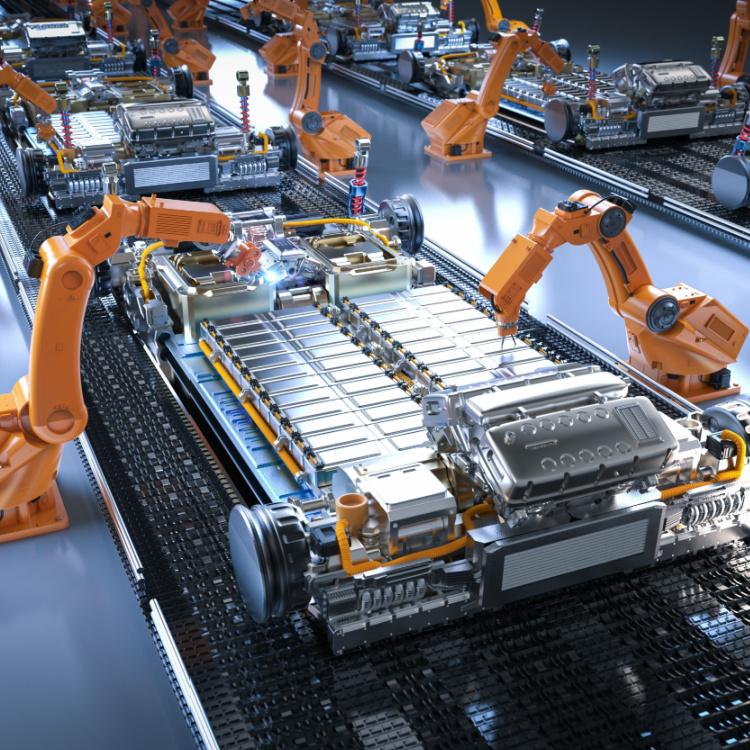General Motors is set to import electric vehicle batteries from China’s leading battery manufacturer, Contemporary Amperex Technology Co. Limited (CATL), despite existing U.S. tariffs on Chinese goods. According to an exclusive report by The Wall Street Journal, this strategic move underscores GM’s commitment to securing critical components for its expanding EV lineup amid ongoing trade tensions. The decision highlights the complexities facing American automakers as they navigate supply chain challenges while striving to meet ambitious climate and production goals.
GM’s Strategic Decision to Source EV Batteries from CATL Amid Tariff Challenges
General Motors is making a calculated move by choosing to import electric vehicle (EV) batteries from China’s CATL, despite the ongoing tariffs imposed on Chinese goods. This decision highlights GM’s commitment to securing a reliable and cost-effective supply chain for its expanding EV lineup. Industry analysts suggest that, while tariffs add an additional layer of cost, CATL’s advanced battery technology and competitive pricing remain unmatched in the global market. GM is prioritizing long-term innovation and supply stability over short-term tariff impacts, aiming to maintain its competitive edge in the fast-evolving EV sector.
Key Factors Influencing GM’s Decision:
- CATL’s cutting-edge lithium-ion battery advancements
- Significant production capacity aligned with GM’s EV targets
- Mitigation strategies to offset tariff-related costs
- Strengthening US-China supply chain collaboration
| Criteria | CATL (China) | Domestic Suppliers (US) |
|---|---|---|
| Battery Efficiency | High | Moderate |
| Production Capacity | Massive | Limited |
| Cost Competitiveness | Lower | Higher |
| Tariff Impact | Significant | Minimal |
Implications for the US Electric Vehicle Market and Supply Chain Resilience
The decision by General Motors to continue importing electric vehicle (EV) batteries from CATL-a leading Chinese supplier-underscores the intricate challenges facing the US EV market as it scales. Despite tariffs aimed at protecting domestic manufacturing, GM’s move highlights a critical dependency on global supply chains that are currently more cost-effective and established. This reliance poses risks amid growing geopolitical tensions and emphasizes the urgent need for the US to develop more robust, localized battery production capabilities to ensure long-term supply chain resilience.
Key factors influencing supply chain resilience include:
- Cost benefits driving imports despite tariffs
- Limited domestic capacity for battery cell production
- Potential vulnerabilities from geopolitical conflicts and trade disruptions
- Pressure on US manufacturers to innovate and expand production
| Aspect | Current Status | Implication |
|---|---|---|
| Battery Production | Majority imported from China | Cost-effective but risk-prone |
| Tariffs | Imposed but partially ineffective | Limited deterrent on imports |
| Domestic Investment | Growing but nascent | Necessary for supply chain independence |
Recommendations for Policymakers on Balancing Trade Protection and Industry Competitiveness
“`html
In navigating the complex dynamics of global trade, policymakers face the critical task of supporting domestic industries without stifling innovation or competitiveness. As demonstrated by General Motors’ decision to source EV batteries from China’s CATL despite tariffs, it is clear that protectionist measures alone cannot guarantee industrial growth. Instead, governments should adopt a strategic approach that combines targeted tariff policies with incentives to foster research and development, workforce training, and supply chain diversification. Prioritizing collaboration with international partners while maintaining a competitive domestic base will help mitigate the risks posed by supply disruptions and geopolitical tensions.
- Implement adaptive tariffs: Adjust tariffs based on product innovation cycles and manufacturing capabilities to avoid hindering progress.
- Encourage local innovation: Provide grants and tax credits for R&D in critical sectors like EV batteries to reduce dependency on imports.
- Support infrastructure development: Invest in domestic manufacturing facilities and raw material processing to enhance self-sufficiency.
- Promote workforce skills: Strengthen training programs aligned with advanced manufacturing needs to maintain competitiveness.
| Policy Tool | Benefit | Potential Risk | |||||||
|---|---|---|---|---|---|---|---|---|---|
| Adaptive Tariffs | Protects fledgling industries without long-term distortion | Implementation complexity and lobbying pressures | |||||||
| R&D Incentives | Boosts domestic innovation and reduces import reliance | Misallocation of resources if not carefully targeted | |||||||
|
|




